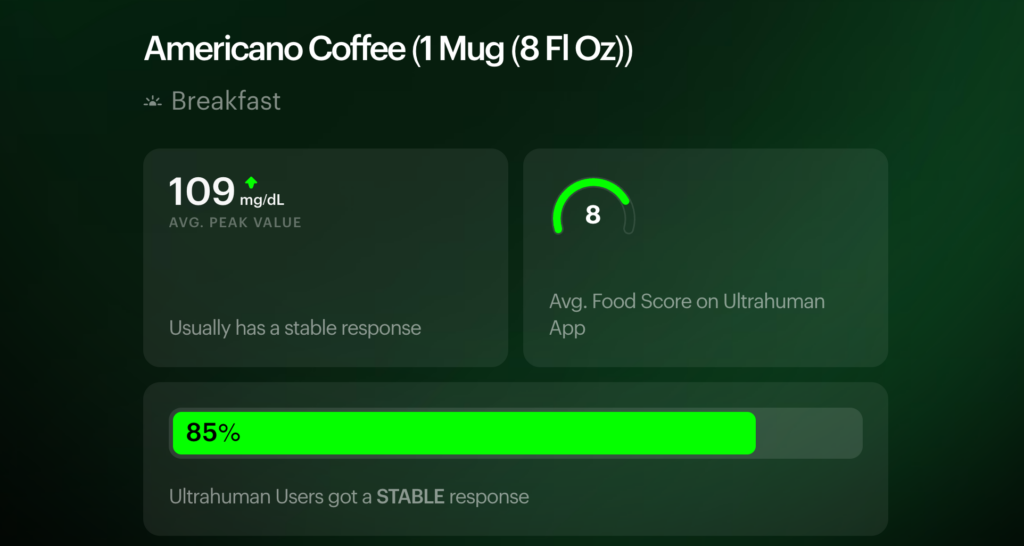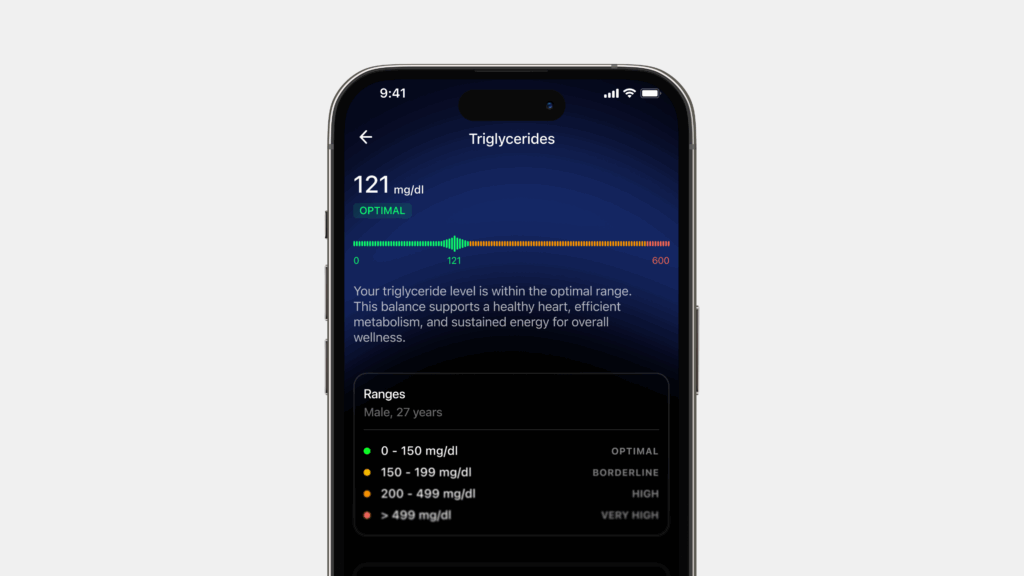Caffeine’s effect on blood sugar is often misunderstood. While many rely on coffee for a daily energy boost, it’s often served after dinner. But few consider how it influences glucose regulation.
Research shows that caffeine can temporarily impair insulin sensitivity, potentially leading to higher blood sugar levels. Yet paradoxically, long-term coffee consumption has been linked to a reduced risk of type 2 diabetes.
We explore how caffeine interacts with blood glucose in both the short and long term, based on studies – and what that means for metabolic health.
Read more: Caffeine and adenosine – how to avoid the afternoon slump
Caffeine and insulin sensitivity

Coffee in itself is rarely shown to spike blood sugar (when consumed without sugar) and data from the Ultrahuman Open Glucose Database showed that 85% of people had no response after drinking coffee.
But when consumed around a meal, it could be a different story. Caffeine has been shown to acutely reduce insulin sensitivity. This means that after consuming caffeine, the body may require more insulin to transport glucose from the bloodstream into cells.
.A randomized controlled trial found that a single dose of 250 mg of caffeine (equivalent to approximately two to three cups of coffee) reduced insulin sensitivity by 15% in healthy men.
As a result, individuals may experience higher postprandial glucose levels, particularly when caffeine is consumed close to carbohydrate-rich meals.
This effect is more pronounced in people with existing metabolic impairments, including insulin resistance and prediabetes.
Habitual consumption and long-term risk

Despite these short-term effects, long-term observational data suggest a different picture. Numerous cohort studies have linked regular coffee consumption with a lower risk of developing type 2 diabetes.
A meta-analysis covering over 1 million individuals found that each additional daily cup of coffee was associated with a 9% relative reduction in diabetes risk.
Interestingly, both caffeinated and decaffeinated coffee were associated with this benefit, implying that other bioactive compounds — such as chlorogenic acids — may play a protective role, independent of caffeine.
Mechanisms of action
Several mechanisms have been proposed to explain caffeine’s acute effects on glucose metabolism:
- Adrenaline release: Caffeine stimulates the release of epinephrine, which can inhibit glucose uptake in peripheral tissues.
- Adenosine receptor antagonism: Caffeine blocks adenosine receptors, which may interfere with insulin signaling pathways.
- Altered sleep architecture: Poor sleep — which can result from caffeine consumption, particularly in the evening — is associated with impaired glucose regulation the following day.
Glucose is highly individual
The metabolic effects of caffeine vary widely across individuals, depending on genetics, habitual intake, time of consumption, and baseline metabolic health. Fast metabolizers of caffeine may experience fewer glycemic effects, while slow metabolizers or individuals with impaired glucose tolerance may see more pronounced spikes in blood sugar after caffeine intake.
For individuals monitoring their blood glucose — whether for general health, prediabetes, or diabetes — caffeine timing and context matter. Some evidence suggests that consuming coffee on an empty stomach may exaggerate glucose fluctuations. Additionally, consuming caffeine late in the day may impact sleep quality, indirectly affecting insulin sensitivity.
Summary
- Acute intake of caffeine can reduce insulin sensitivity and elevate postprandial glucose levels.
- Chronic coffee consumption, in contrast, is associated with a reduced risk of type 2 diabetes.
- The glycemic impact of caffeine is influenced by dose, timing, meal composition, and individual metabolic state.
- For those with glucose dysregulation, moderating caffeine intake or shifting to earlier consumption may be beneficial.
While caffeine is not inherently harmful to glucose control, its effects are context-dependent. Monitoring individual response — particularly to meals, sleep, and stress — may offer more useful insight than blanket recommendations.








